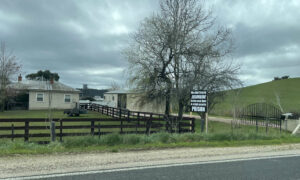Newsletter item – Tasmanian National Parks Association, 8 February 2024
‘Reform’ of PWS Reserve Activity Assessment (RAA) process proposes to fast-track developments without providing appeal rights
The government is proposing a developer-friendly development assessment and approval process that facilitates the development of Lutruwita / Tasmania’s World Heritage Areas, national parks and other reserves. The proposed new ‘Statutory Environmental Impact Assessment Process’ for reserves will enable developers to request the Minister for Parks to take developments out of the current planning and environmental assessment process, and instead be given to a Development Assessment Panel (DAP) for evaluation.
The DAP has all the power to assess and approve a development and can even change any existing management plan rules in place for proposed development locations.
Local councils will be removed from the approval process and the community’s right to appeal the decision will also be removed.
Have your say
Comments on the government’s RAA Reform Consultation Paper can be made online, by email or post up until 8 March 2024. We have provided more detailed information on the issue to guide preparation of your submission at the link below. Please make your concerns known to the state government by email to here ([email protected]). Comments can also be made online or by post.
The Tasmanian government’s Consultation Paper can be viewed here.
We have provided more detailed information on the issue to guide preparation of your submission below.
Scrap the DAPs
The state government has released its long awaited proposal for reform of the RAA process (the process for the environmental and social impact assessment of proposed developments on reserved land). https://nre.tas.gov.au/conservation/reserve-activity-assessment-reform/have-your-say-on-reserve-activity-assessment-reform There is an associated proposal to change the existing management planning process.
This so-called ‘reform’ of the RAA process is actually the addition of an entirely new process to fast-track large and/or controversial proposals for development on reserved land without any opportunity for the public to challenge the outcome. This provides even less accountability than the current process which usually provides an opportunity to challenge a decision through the council’s assessment of the development application.
The new process will see certain development applications being determined by a development assessment panel (DAP) appointed by the state government, rather than an elected local council. The decision of the DAP will not be subject to appeal on the merits of the proposal. The reference to appeal rights in the government’s discussion paper refers only to the right to seek administrative (judicial) review on the basis that due process has not been followed.
The state government has previously attempted to justify the absence of merit-based appeal rights with the argument that controversial development proposals are usually appealed so it is more efficient to only have a single assessment process to take the place of both the initial decision and the appeal. This does not address the following concerns:
- In the present system the decision is made by the local council. The decision makers are members of the local community, elected by the local community. As such they are accountable to their community at the next council election and are far more likely to be aware of community concerns than any ‘expert panel’ of government appointees who are ultimately accountable to the government.
- A decision by an ‘expert panel’ is not equivalent to a review of a decision by TasCAT even though there are some superficial similarities in procedure. In a TasCAT appeal members of the public have the opportunity to explain what they consider to be the flaws in the original decision so that these can be subject to additional scrutiny. There is no opportunity for review of a DAP decision even if it is obvious that it has not adequately addressed particular issues.
Another alarming aspect of the proposed new process is the possibility of a DAP recommending amendments to an existing management plan. This circumvents most of the usual process for amending a management plan and undermines the rationale for management planning – to avoid piecemeal development.
The inadequacies of PWS RAA Process have been a major concern of TNPA since 2016.
https://tnpa.org.au/wp-content/uploads/2017/11/Why-Tas-needs-a-statutory-process-to-control-development-on-reserved-land-.pdf
One of the TNPA’s key concerns has been the need for third party appeal rights on the merits of the proposal. The intent of this new process is clear; the government is responding to the demands of the development lobby who want a process that provides a near-certainty of a quick approval uncomplicated by appeals.
The types of developments most likely to be fast-tracked include large and/or controversial tourism developments (e.g. wilderness lodges and cable cars) and transmission lines.
A public meeting (Scrap the DAPs) to discuss the implications of the DAPs in the assessment of proposed developments on both private and reserved land has been organised by PMAT in the Hobart Town Hall at 1pm on Wednesday 6 March.
Submissions are due by Friday 8th March 2024. Email them to [email protected] or use the online form accessible from the webpage linked in the first paragraph.
Editor’s note: we do use some AI-generated images these days. The requirements of our site layout are that every post needs an image and, well, not enough photos are sent in for the amount of material we want to publish. In this case I typed ‘eyesore hotel’ in the search panel of Freepik and this is one of the results. It, I feel, does a good job at representing the inappropriate juxtaposition of a luxury facility far too close to a natural wonder; the hotelgoer’s joy will be every other visitor’s misery. And that’s without even figuring how the hotel’s environment footprint will affect the wilderness area.

































